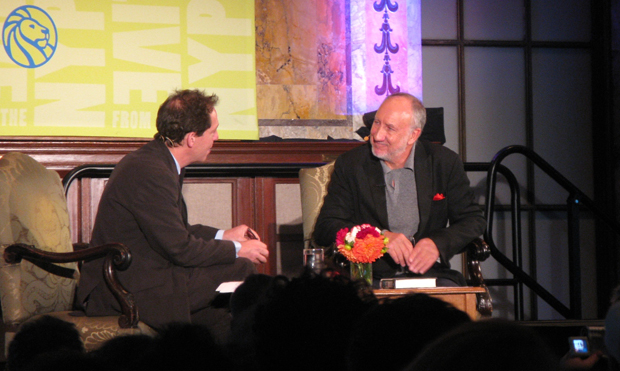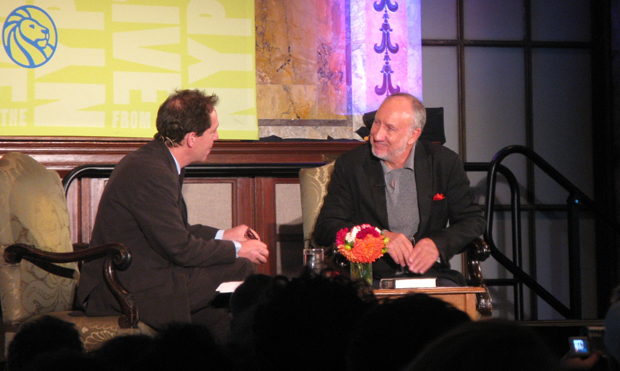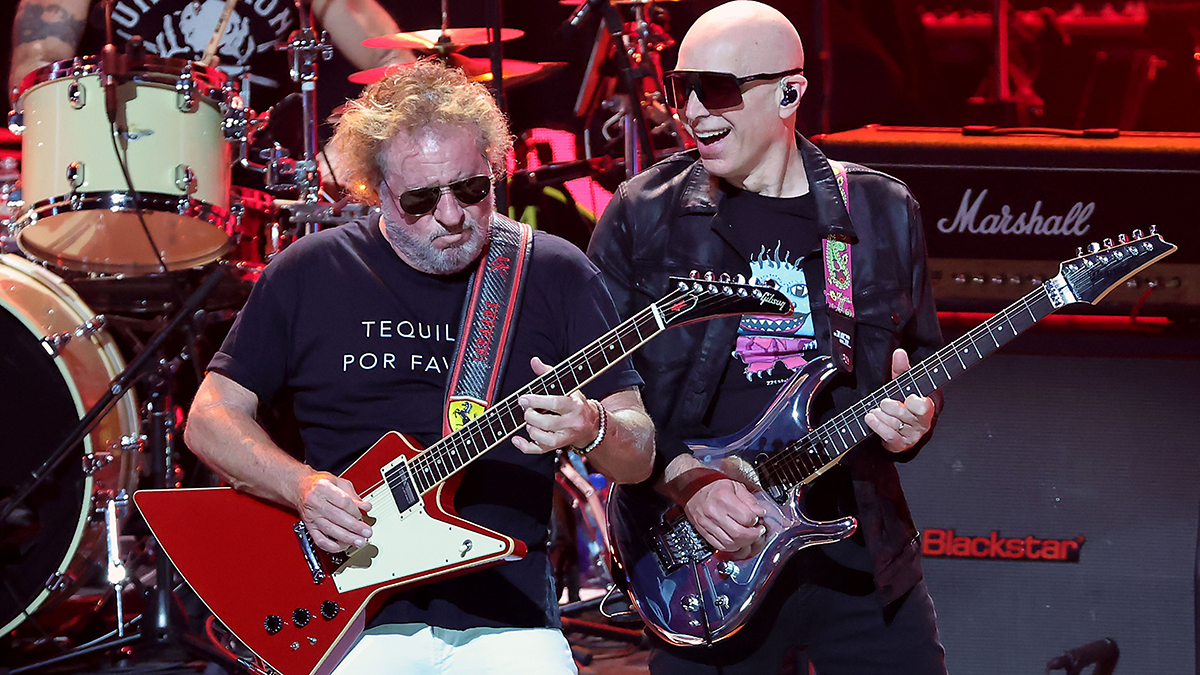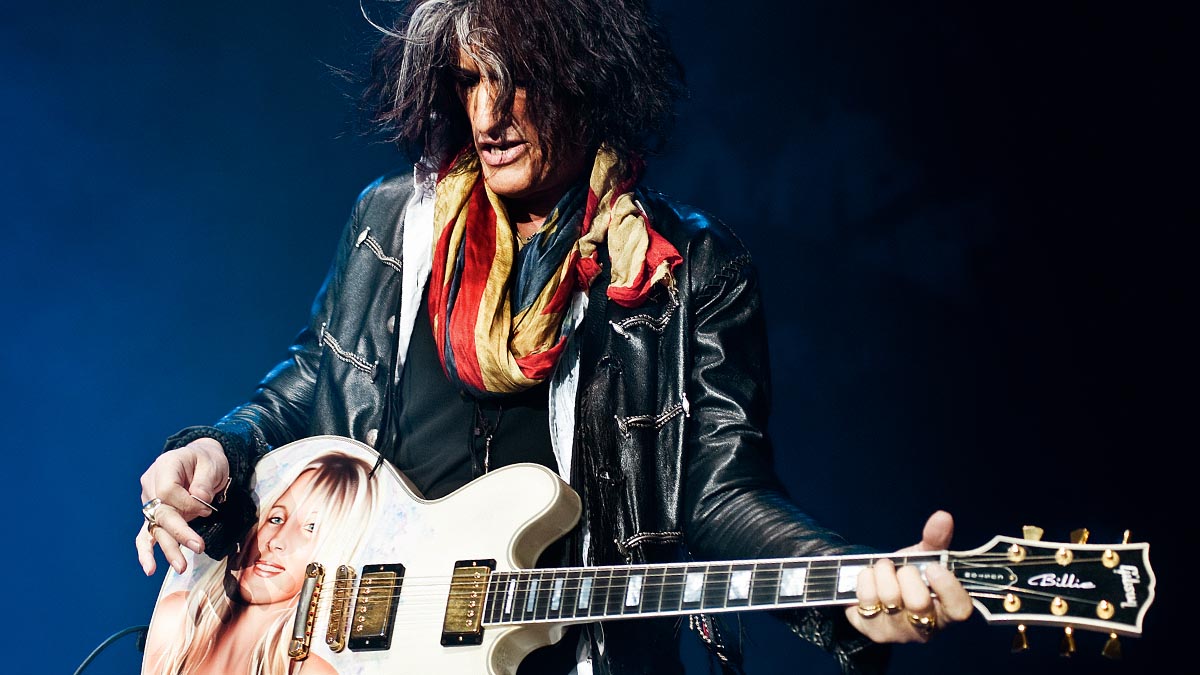Sully Time: Reviewing a Discussion, a Book and a Friendship with Pete Townshend

There are two memorable lines directed at the lead character — the reporter — in Cameron Crowe’s coming-of-age rock movie, Almost Famous.
In one, a rock critic tells him, “Friendship is the booze they feed you. They want you to get drunk on feeling like you belong.” Later, a band member preaches, “I don’t think anyone can really explain rock and roll. Maybe Pete Townshend, but that’s OK.”
Both lines ring so true to yours truly. I have followed Townshend, The Who’s guitarist and principal songwriter, since the mid-'70s, from listening to his tunes, seeing him perform and eventually having conversations with the man himself.
At the New York Public Library’s October 8 Q&A event to discuss Townshend's new autobiography, Who I Am, I've come full circle, back into strictly listening mode. It's the place the veteran rock star feels most at ease. He speaks, we listen.
With NYPL’s Paul Holdengraber moderating, Townshend kicked off the sold-out private event by talking about his childhood in post-World War II West London as the nation began its rebuilding process. As he moved into his teen years, Townshend was looking for something else than the world in which his parents had grown up; his life couldn't be the same as theirs. “We were now young men who did not have to be told, ‘Here’s a gun.’ We realized we needed a different life, and we needed a new music, new language, new fashion,” Townshend said.
Townshend found his calling with the rambunctious Who, leaving behind art school but slowly incorporating some of its concepts into a music career alongside singer Roger Daltrey, bassist John Entwistle and drummer Keith Moon. As the rock scene evolved in the turbulent '60s, Townshend quickly understood the importance of his newfound profession. “There were two things I thought we had to do as an artist,” Townshend said. “To serve the audience with hope and vision and to bring them into the reality of the time in which we were living.”
Townshend then took a break, picked up his Gibson J-200 and played "I’m One" from 1973's Quadrophenia (which The Who will present in a world tour this November), giving me some extra time to read his new book while listening.
Get The Pick Newsletter
All the latest guitar news, interviews, lessons, reviews, deals and more, direct to your inbox!
Within the three-part Who I Am, Townshend navigates the reader through his life: his time spent with his abusive grandmother ("the darkest part of my life"), the 1967 Monterey Pop Festival backstage coin-toss situation with Jimi Hendrix on which act should go on first (‘Whoever lost the toss would go on last. Jimi lost’), countless descriptions of his sexual escapades and substance-related problems that cost him his marriage to Karen Astley ("the unpleasant stuff she probably wishes I simply forgot") and what occurred during the life-altering 2003 child porn accusations ("I didn’t think I would survive it") that still follow him today.
As a Townshend fan, I'm always looking for new revelations. Some passages in the book are revealing, such as the genesis, development and failure of what was to be his greatest achievement -- the 1971 Lifehouse project, which was miraculously turned into the stellar Who’s Next.
Other descriptions, such as the 1979 Who concert in Cincinnati where 11 people were trampled to death, seem unusually brief with barely three pages devoted to the tragedy. Townshend recently posted on TheWho.com that 500 pages had been omitted by editors and attorneys. Although a thousand pages would have been total overkill, Townshend’s story would have likely benefited from more copy in some spots and less detail in others.
Back to the Q&A: At the tail end of a half-century career in music, Townshend admitted there have been challenges in just trying to survive the line of business because “part of the business is to see how far you can go.” As for where his head is now, the 67-year-old Townshend said something rather profound: “Just when we learn how to live, we die, and I can’t change how I’m perceived.”
It became clear to me that Townshend’s book was the only proper way he could finally explain himself before the inevitable.
After playing "Drowned" (also from Quadrophenia) on his Collings OM-3, Townshend stepped off the stage to sign books for the rancorous middle-aged devotees who had made their way in from all over. I hadn’t spoken to Townshend face to face since 2007 at a Greenwich Village acoustic-driven event at Joe’s Pub with his partner Rachel Fuller. Back then, I had mistakenly asked him for a quote to put on my book jacket cover for my own upcoming rock music novel.
As Townshend signed my book, I asked him how he thought the book publicity blitzkrieg that HarperCollins was subjecting him to all week was going. Looking up with a small grin, he said, “Going well. So Sully, are there any upcoming books of yours I need to give a ringing endorsement?”
“No,” I said. How had this famous rocker, with all the thousands of things he had just now revealed, managed to remember my little inconsequential request? Had Townshend wanted me to know he hadn’t forgotten about my attempt to use his name for publicity? Or perhaps it was Pete’s way of poking fun with his distant friend from the States after a long night with his fans?
I asked Townshend if he was ready for the Quadrophenia rehearsals. “No, not yet," he said. "I can barely keep up with this pace.”
The two of us shook hands and I headed home, reading more of his exploits on the train ride back to Long Island. As the clock struck midnight, I turned 49 and had a better understanding of just who exactly Townshend is. I’m just wondering if it will take me another 20 years as well to figure out who ... I … am.
John Sullivan has been a singer, multi-instrumentalist and songwriter performing in the New York City metro area for nearly 20 years and is currently fronting the Americana band Throwback Busking.

Photo: John Sullivan
“Even the thought that Clapton might have seen a few seconds of my video feels surreal. But I’m truly honored”: Eric Clapton names Japanese neo-soul guitarist as one to watch
“You better be ready to prove it’s something you can do”: Giacomo Turra got exposed – but real guitar virtuosos are being wrongly accused of fakery, too









